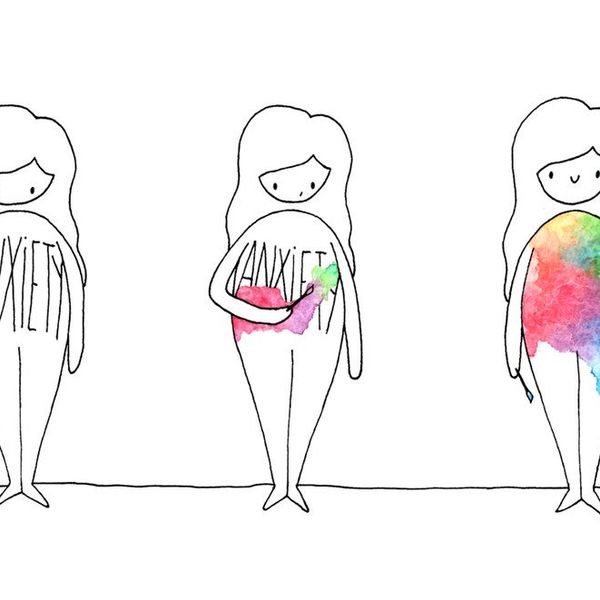Experiencing feelings of stress and anxiety are a part of life, but sometimes they can become overwhelming. In contrast, continuous feelings of stress and anxiety for an extended period of time can actually become a hazard to your health. As a person struggling with Generalized Anxiety Disorder, extreme worrying and stress have become a part of my daily life.
According to the Anxiety and Depression Association of America (ADAA), anxiety disorders are one of the most commonmental health issues reported on college campuses across the country. In the same study, 80 percent of students reported having frequent or daily stress in their lives.
With those facts in mind, we need to be aware that going through college with depression or anxiety can truly take a toll on the educational experiences of a student. As someone personally struggling with depression and anxiety, I can relate to daily stressors and how they can put a hold over daily responsibilities.
For those of you who struggle with depression or anxiety disorders, you may find yourself relating to the following symptoms:
- Skipping class because you are too anxious to attend.
- Waking up in the morning and immediately feeling depressed or anxious.
- Worrying about your appearance so much that it hinders you leaving the house.
- Constant skin popping/picking/plucking etc.
- Constant fatigue.
- Tapping your pencil or foot uncontrollably in class.
- Trouble sleeping due to anxiety.
These are just some examples of what you may experience if you are a college student struggling with depression or anxiety. It can be difficult for others to relate to you if they have not gone through it as well. People will tell you to "talk yourself out of it" or that it's "all in your head" but realistically, it can be related to a chemical imbalance in the brain, which is beyond your control in some cases.
It can be draining to feel all of the extra weight of anxiety and depression while you are going through college. If you are like me, you feel alone and you constantly feel like you are not where you should be. Do not fret, because you do have some quick options as well as some long-term options:
1. Talk to your doctor or psychiatrist about medication options.
Although some people may not agree on this option, if you deem it necessary to start a medication in order to relieve some of the anxiety and depression symptoms, do not hesitate to talk to your doctor or psychiatrist about what is right for you. Ultimately, they will be able to guide you through a process in which you can work towards helping yourself.
2. Go for a walk or get some fresh air.
For a quick fix, getting out of your apartment and getting some fresh air has always helped me to calm down and not feel as anxious if I am going through an episode. I take a step outside and take deep breaths, and I notice that I begin to calm down once I focus on my surroundings. It works best if you try to let everything go out of your head and you focus solely on your breathing and your surroundings.
3. Drink some tea and meditate.
Make a hot tea, sit down and take some deep breaths. For a quick fix, concentrating on your breathing may help to let everything go from inside your head and try to focus on your inner-strength and also yourself. Try to calm down and focus on your surroundings.
4. Exercise.
Physical activity has been proven to lessen stress and anxiety symptoms in patients. Not only will you be improving your mental health, you will be getting your physical appearance in line as well!
5. Cut out caffeine.
Caffeine causes "the jitters," and one of the first things that my therapist advised me to do was to cut caffeine out of my daily routine. By eliminating caffeine, you are decreasing your risk of feeling shaky and anxious tremendously. Stay hydrated by drinking something decaffeinated!
As always, these are just recommendations for some quick fixes to an anxiety or depression disorder. I am not a medical practitioner, but I do suffer from Generalized Anxiety Disorder, and I know what it is like to feel anxious and sick the moment you wake up and you have no clue why. Every person is different, and what may work for me may not work for you. For any serious health questions or concerns, please do not hesitate to talk to your doctor.
External Links and Resources:
Facts | Anxiety and Depression Association of America





















